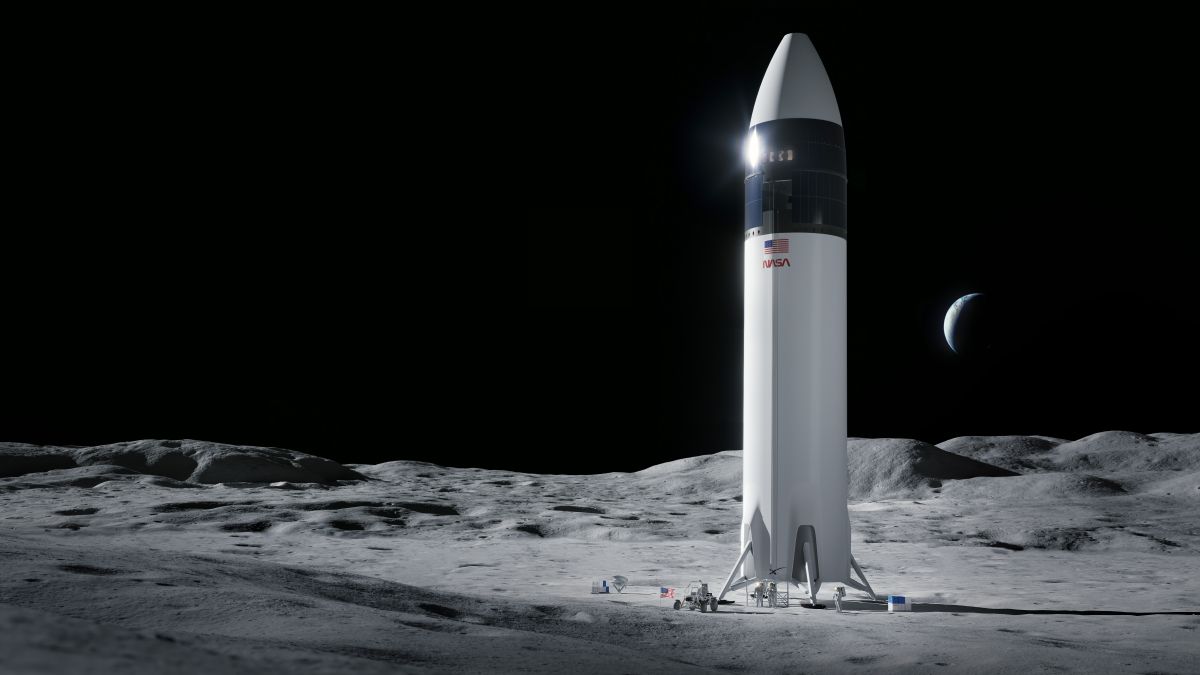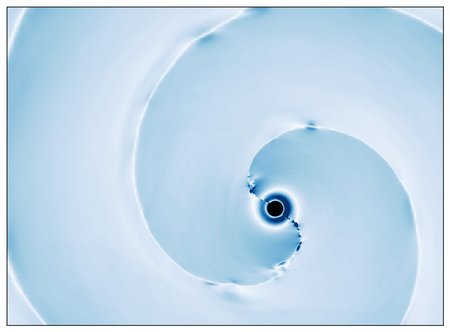
The U.S. Senate passed a spending bill on Tuesday (June 8) that would allocate nearly $250 billion to American scientific and technical research — including $10 billion for the development of private crewed moon landers for NASA.
The U.S. Innovation and Competition Act sailed through the Senate on a 68-32 vote. As its name suggests, the bill is designed to boost American industrial and technological competitiveness, chiefly with China.
The bill, which was previously known as the Endless Frontiers Act, includes an amendment recently added by Sen. Maria Cantwell (D-Wash.). The amendment would grant NASA just over $10 billion for the development of crewed moon landers that will be used by the agency’s Artemis program, which is working to establish a sustainable human presence on and around the moon by the end of the 2020s.
Related: Protests, trolling and more: Drama swirls around NASA’s next moon lander
In April, NASA announced that it had awarded SpaceX a $2.9 billion contract to finish work on its Starship vehicle and use it as the Artemis lander. The agency picked Starship over two other private landers — one proposed by Dynetics and one designed by “The National Team,” which is led by Jeff Bezos’ spaceflight company, Blue Origin.
Both Dynetics and The National Team soon filed protests with the U.S. Government Accountability Office, claiming that the selection process was flawed. Both teams asserted that NASA should have awarded two contracts at this stage, as the agency had said it wanted to do, to maintain competition and redundancy.
But NASA officials have said that the money Congress has allocated to date is only enough to support the development of a single crewed Artemis lander. And that’s where the U.S. Innovation and Competition Act and the $10 billion amendment come in.
Cantwell’s amendment invokes the need for NASA to have multiple Artemis lander options at this point. It doesn’t specify that one of them must be built by The National Team, but the fact that she represents Blue Origin’s home state has led some folks to make that assumption. Sen. Bernie Sanders (I-Vermont), for example, has called for his colleagues to get rid of the “Bezos Bailout.”
That didn’t happen in the Senate. But it still could in the U.S. House of Representatives; the U.S. Innovation and Competition Act still needs to be approved by that chamber.
“The U.S. Innovation and Competitiveness Act, which includes the NASA authorization bill, is an investment in scientific research and technological innovation that will help ensure the U.S. continues to lead in space and sets us on a path to execute many landings on the moon in this decade,” NASA Administrator Bill Nelson said in a statement on Tuesday. “I applaud the Senate passage of the bill and look forward to working with the House to see it passed into law.”
Mike Wall is the author of “Out There” (Grand Central Publishing, 2018; illustrated by Karl Tate), a book about the search for alien life. Follow him on Twitter @michaeldwall. Follow us on Twitter @Spacedotcom or Facebook.



